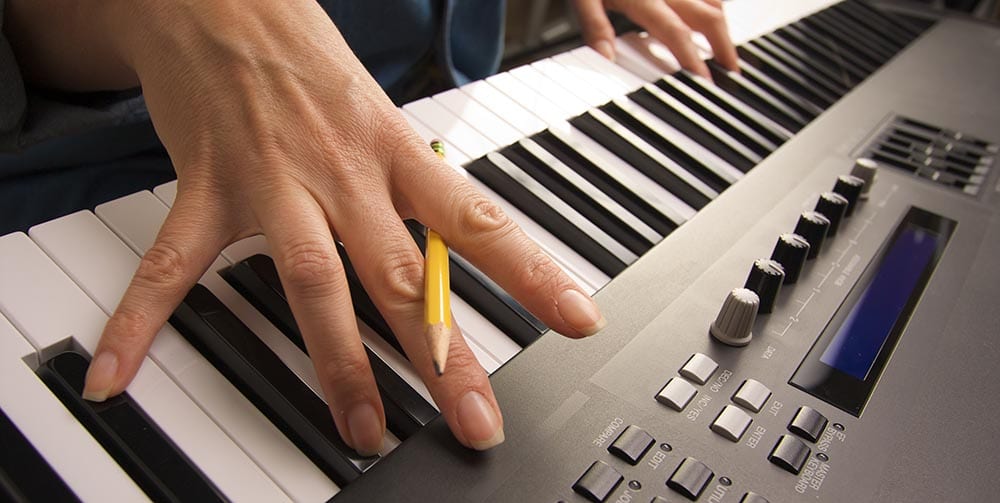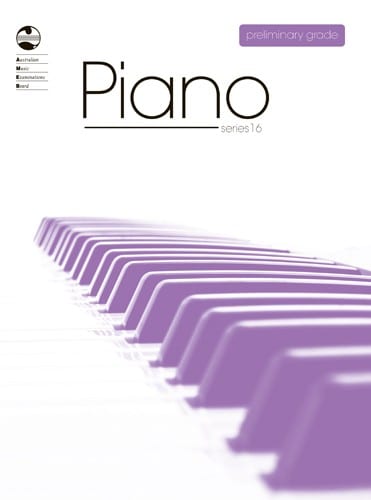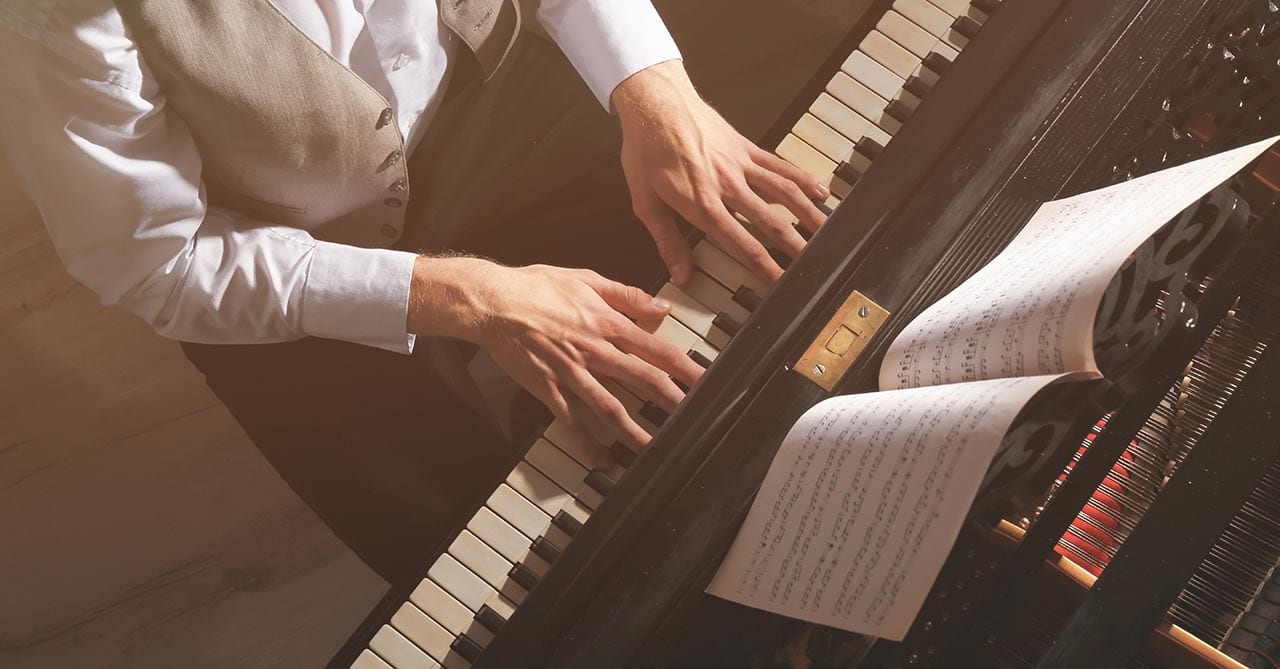Practicing an instrument isn’t most people’s idea of fun. But if you want to see any improvement it needs to be a daily ritual. These 10 tips should help you develop a regular routine that is efficient, effective, and hopefully even fun. Anyone can learn the piano, from kids to adults to grandparents – all it takes is regular practice.
Feel free to contact Pianoforte if you want to organise piano lessons in the Sydney area.
- Avoid Marathon Practice Sessions
No matter how long you want to practice in one day, be sure to break it up into manageable chunks. If you sit and practice for three hours straight, you may feel you’ve achieved a lot, but your results will be poor. - Maintain a Regular Practice Schedule
Practice daily, for the same amount of time, and ideally at the same time or times. This will create good discipline and be easier to maintain long term. - Exercise Away from the Piano Too!
Whatever exercises you decide to use, keep them simple. You should be concentrating on improving technique, not on struggling to remember the next note.
Ask your teacher for finger exercises you can do on a tabletop or your thigh. That way you can focus attention on finger independence and strength completely independent of notes.
- Learn New Music Slowly
Before you start learning a piece, analyse it a little to get a feel for its shape. Once you start learning, practice it slower than the marked tempo until you are completely sure you have it right. Barrelling ahead may lead you to memorise mistakes, and these are difficult to unlearn.
- Stick to the Music… Most of the Time
If you are called on to perform or record a piece, you may want to take creative liberties, but while learning its best to stick to what’s written.
You should also try to follow fingering markings wherever possible, but these can be changed if they really don’t work for your hands.
- Perfecting a Piece
Once you have memorised a piece of music, the real work begins. Don’t just play it over and over again, zero in on tricky spots, try new things, and stay flexible. Each time you play should be unique, not rote regurgitation.
- Stay Supple
When practising scales, play each hand with a different touch and try playing musical games where you vary exercises in unique and challenging ways. This will help to make each hand independent, keep you supple, and stop you falling into lazy habits. - Whole Body Playing
Remember that playing the piano involves the coordinated movement of your whole body, including arms, fingers, legs, posture – everything! Try slowing right down sometimes, so you can be mindful of each part of your body and how it is helping or hindering your playing. - Practice without the Pedals
Practising a little slower and without using pedals to smooth out the sound will force you to develop a more disciplined, legato finer style.
- The Power of Distractions
This one sounds strange, but try to practice with talk radio or a podcast on in the background. Studies have shown that a certain amount of background noise actually increases concentration and productivity!
If you’re interested in taking your piano playing to the next level, consider Piano lessons with Pianoforte. To find out more, simply get in touch with us today. Call 02 9411 8911.
hk pools
togel online
bento4d
situs togel online
situs togel resmi
situs togel
toto togel
situs slot gacor
toto slot
situs hk
https://desasidetapa.id
toto togel
situs togel
toto togel
situs togel
toto slot
toto slot
https://www.kimiafarmabanten.com/
https://www.kimiafarmabogor.com/
rtp slot
slot gacor
toto slot
slot gacor
rtp slot
situs togel
https://www.kimiafarmalampung.com/
toto togel
slot gacor
https://www.kimiafarmapontianak.com/
https://www.kimiafarmariau.com/
https://www.kimiafarmasurabaya.com/
situs toto
bento4d
penidabet
situs toto togel
situs togel resmi
bo togel
toto slot
penidabet
data hk
bento4d
situs togel
situs toto
toto slot
data hk
toto slot
penidabet
data macau
situs toto
slot gacor
situs toto
https://cabinindo.id/
bo togel
situs slot resmi
bento4d
bento4d
situs togel
situs toto
situs togel
slot gacor
slot gacor
situs toto
situs toto
slot gacor
slot gacor
situs toto
bandar togel
slot gacor
toto slot
situs togel
situs togel
slot gacor
penidabet
slot gacor
rtp slot gacor
situs toto
rtp slot
bento4d
bento4d
situs gacor
bento4d
slot gacor
rtp live
rtp slot
sydney night
slot gacor
situs slot terpercaya
situs togel
toto slot
rtp slot gacor
slot gacor
link slot gacor
situs togel
situs hk
bento4d
bento4d
link slot
situs toto
situs slot gacor
situs toto
toto togel
slot gacor hari ini
slot gacor
slot gacor
slot gacor
bento4d
togel online
bento4d
bandar togel
situs toto
bento4d
situs slot gacor
slot gacor hari ini
link slot
bandar togel
situs slot gacor
situs slot gacor
situs slot gacor
slot gacor hari ini
toto togel
bento4d
bento4d
bento4d
situs slot
bento4d alternatif
data pengeluaran hk
bento4d
desapedawa.id
https://desaparhorboan.id
https://desarintis.id
toto togel
rtp slot
bento4d
situs toto
bento4d
bento4d
bento4d
situs togel
bento4d
bento4d
situs slot
bento4d
situs togel
situs toto
situs slot gacor
slot gacor hari ini
bandar toto togel
bento4d
bandar toto macau
bandar togel
situs toto
bento4d
slot gacor
toto slot
toto slot
situs toto
situs toto
rtp slot
bento4d
bento4d
link slot gacor
bento4d
situs toto
bento4d
situs slot gacor
situs toto
slot gacor
slot gacor hari ini
slot thailand
situs slot gacor
situs togel
toto slot online
bento4d
bento4d
bento4d
situs slot resmi
toto slot
situs toto
situs toto
https://www.dispargianyar.id/
toto slot
slot resmi
pmtoto
pmtoto
bento4d
bento4d
bento4d
bento4d
bento4d
bento4d
bento4d
slot gacor
bandar togel
slot thailand
rtp slot
rtp slot
situs togel
slot gacor
togel online
slot88
slot gacor
slot gacor
slot gacor
slot online
situs toto
slot gacor
bandar togel
slot thailand
situs toto
bento4d
slot thailand
toto togel
toto togel
link alternatif bento4d
situs hk
situs toto
link slot gacor
situs hk
situs toto
situs toto
situs hk
situs togel
rtp slot
rtp slot
rtp slot
rtp slot
situs toto
situs slot gacor
bento4d
bento4d
bento4d
slot gacor
toto togel
bento4d
situs toto
situs togel
bento4d
rtp slot
bento4d
bento4d
bento4d
link alternatif bento4d
rtp slot
toto slot
situs toto
situs hk
situs slot
bento4d
bento4d
bento4d
bento4d
slot gacor
bento4d
link alternatif
bento4d resmi
Daftar Bento4d
slot gacor
slot gacor
toto togel
slot gacor
toto slot
bento4d
link slot
bento4d
slot gacor
slot thailand
link slot
situs toto
slot gacor
situs slot gacor
toto slot
situs toto
slot thailand
situs togel
situs toto
situs hk
slot gacor
slot gacor
toto slot
situs toto
situs toto
situs bola
situs togel
slot gacor
situs toto
situs slot
situs slot
bento4d
slot gacor
toto togel
toto slot
slot gacor
slot gacor
slot gacor
slot gacor
slot resmi
situs toto
slot thailand
slot gacor
slot gacor
slot gacor
situs toto
slot gacor
slot gacor maxwin
slot gacor
slot gacor
link slot
toto slot
bento4d
slot gacor
slot gacor
slot gacor
link slot
situs slot
slot gacor terpercaya
situs slot
slot gacor online
slot gacor
slot gacor
link situs slot
situs slot
slot gacor
situs slot gacor
slot gacor
slot gacor
slot gacor
link situs slot
situs toto
toto slot
link slot
situs toto
bento4d
bento4d
bento4d
slot gacor
toto slot
slot gacor
situs togel
situs togel
bento4d
bento4d
bento4d
slot gacor
situs slot
jacktoto
jacktoto
slot gacor
bento4d
bento4d
bento4d
toto slot
situs toto
link situs slot
bento4d
situs toto
bento4d
situs toto
bento4d
bento4d
slot gacor
situs toto
slot gacor
link slot
link slot
slot gacor
bento4d
bento4d
bento4d
slot gacor
slot gacor
bento4d
toto slot
situs togel
link slot
slot88
bento4d
slot gacor
bento4d
bento4d
bento4d
situs toto
situs toto
situs toto
bento4d
slot88
slot gacor
link slot
situs slot
situs slot gacor
situs slot
situs slot
toto togel
slot gacor
situs toto
situs toto
situs slot
slot gacor
slot gacor hari ini
slot gacor
situs slot
slot online
toto slot
toto togel



 August 4, 2016
August 4, 2016




